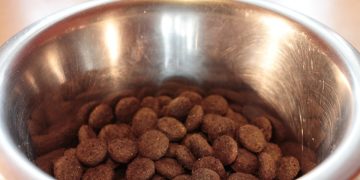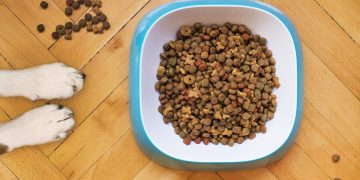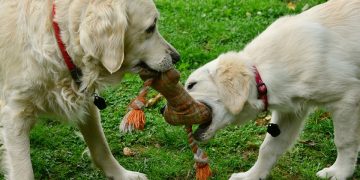Nourish Fido: The Ultimate Guide to Dog Health Food Choices
In recent years, pet owners have become increasingly aware of the importance of providing their furry friends with nutritious and wholesome food. Just as the food we eat plays a crucial role in our overall health and well-being, the same holds true for our beloved canine companions. Fortunately, there is a wide range of options available when it comes to choosing the best food for your furry friend. In this comprehensive guide, we will explore everything you need to know about nourishing your dog with the right food choices.
Why is dog nutrition important?
Proper nutrition is essential for maintaining your dog’s health and well-being. Just like humans, dogs require a balanced diet that provides them with the essential nutrients they need to thrive. A diet lacking in key nutrients can lead to a variety of health issues, including obesity, digestive problems, and a weakened immune system. By providing your dog with high-quality food that is rich in nutrients, you can help them live a longer, happier, and healthier life.
Understanding your dog’s nutritional needs
Before you can choose the right food for your dog, it’s important to understand their nutritional needs. Dogs require a diet that is rich in protein, fats, carbohydrates, vitamins, and minerals. The amount of each nutrient your dog needs will depend on their age, breed, size, and activity level. For example, puppies and active dogs may require more protein and fats in their diet, while older dogs and those with health issues may have different nutritional requirements.
Protein
Protein is an essential nutrient for dogs as it plays a crucial role in building and repairing tissues, muscles, and organs. It also helps support a healthy immune system and aids in proper digestion. Dogs should be fed a diet that is rich in high-quality protein sources, such as meat, fish, and eggs. Look for dog food that lists meat as the first ingredient on the label to ensure your furry friend is getting the protein they need.
Fats
Fats are another important nutrient for dogs as they provide a concentrated source of energy and help support healthy skin and coat. Omega-3 and Omega-6 fatty acids are especially beneficial for dogs as they help reduce inflammation, improve brain function, and support overall health. Look for dog food that contains healthy fats from sources like fish oil, flaxseed, and chicken fat.
Carbohydrates
Carbohydrates are the primary source of energy for dogs and should make up a small percentage of their diet. While dogs do not require as many carbohydrates as humans do, they can still benefit from sources like whole grains, fruits, and vegetables. Look for dog food that contains complex carbohydrates like brown rice, sweet potatoes, and oats to provide your furry friend with sustained energy throughout the day.
Vitamins and minerals
Vitamins and minerals are essential for maintaining your dog’s overall health and well-being. These nutrients play a variety of important roles in the body, including supporting bone health, promoting a strong immune system, and aiding in digestion. Look for dog food that contains a balance of vitamins and minerals, including Vitamin A, Vitamin D, Vitamin E, and calcium.
Choosing the right food for your dog
When it comes to choosing the best food for your dog, there are a few factors to consider. First and foremost, it’s important to select a high-quality dog food that is nutritionally balanced and free from artificial additives and fillers. Look for dog food that is made with real meat as the first ingredient and does not contain any by-products or artificial colors.
Dry dog food
Dry dog food, also known as kibble, is a popular choice among pet owners due to its convenience and affordability. Most dry dog foods are nutritionally balanced and can be left out for your dog to eat throughout the day. Look for dry dog food that is made with high-quality ingredients and does not contain any fillers or artificial additives.
Wet dog food
Wet dog food is another option for pet owners looking to provide their furry friends with a tasty and nutritious meal. Wet dog food typically comes in cans or pouches and is made with a higher moisture content than dry dog food. This can be beneficial for dogs who may have trouble chewing or swallowing dry kibble.
Raw dog food
Raw dog food has gained popularity in recent years as more pet owners seek to provide their dogs with a diet that closely resembles what their wild ancestors ate. Raw dog food can include raw meat, bones, fruits, and vegetables and is often considered to be a more natural and biologically appropriate diet for dogs. However, it’s important to consult with your veterinarian before switching your dog to a raw diet to ensure it meets their nutritional needs.
Common questions about dog nutrition
How much should I feed my dog?
The amount of food your dog needs will depend on their age, breed, size, and activity level. It’s important to follow the feeding guidelines provided on the dog food label and adjust the portion sizes as needed to maintain a healthy weight for your furry friend. If you’re unsure about how much to feed your dog, consult with your veterinarian for personalized advice.
Can dogs be vegetarian or vegan?
While dogs are omnivores and can technically survive on a plant-based diet, it’s important to ensure they are getting all the essential nutrients they need to thrive. If you’re considering feeding your dog a vegetarian or vegan diet, consult with your veterinarian to ensure it is nutritionally balanced and meets their specific dietary requirements.
Should I give my dog supplements?
In some cases, dogs may benefit from supplements to support their overall health and well-being. Common supplements for dogs include Omega-3 fatty acids, glucosamine and chondroitin for joint health, and probiotics for digestive health. It’s important to consult with your veterinarian before giving your dog any supplements to ensure they are safe and appropriate for your furry friend.
Conclusion
In conclusion, providing your dog with the right food is essential for maintaining their health and well-being. By understanding your dog’s nutritional needs and choosing high-quality food that is rich in essential nutrients, you can help your furry friend live a longer, happier, and healthier life. Whether you opt for dry kibble, wet food, or a raw diet, be sure to consult with your veterinarian to ensure you are meeting your dog’s specific dietary requirements. With the right food choices and a balanced diet, you can nourish Fido and ensure they thrive for years to come.














































